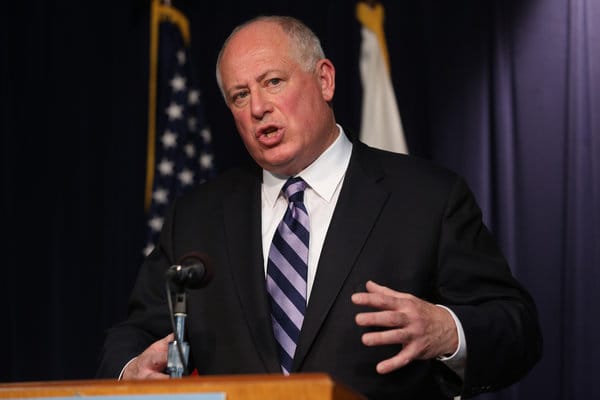Concealed Carry Compromise Bill Passes Illinois Legislature

(Credit: Chicago Tribune)

After much debate, the Illinois General Assembly passed a concealed carry compromise plan ahead of the June 9 deadline.
On the last day of the legislative session, May 31, House Bill 183 -- with amendments from the State Senate -- passed the House with an 89-28 vote.
The legislation now goes to the desk of Governor Pat Quinn.
Quinn had long sought a statewide assault weapons ban and limits on magazines -- neither were included in the final bills. Universal background checks, a guideline desired by many who wanted a more restrictive concealed carry bill, was also not part of the bill.
The assault weapons ban in Chicago would be grandfathered in. Home-rule, which would have allowed communities of more than 25,000 to enact additional restrictions, would be overruled by the law ten days after its enactment. After that, no city could pass an assault weapons ban.
The legislation leaves many on both sides unsatisfied.
The NRA Institute for Legislative Action released a statement:
"This bill, if enacted, will be far from perfect, but it would provide a form of concealed carry in Illinois which is the lone remaining state in the nation to prohibit legal carrying of firearms for self-defense."
Democratic State Sen. Gary Forby said:
"We worked really hard on this bill to come up with something that we think everybody can live with but probably everybody won't be happy with."
Guidelines under the proposal include where concealed weapons may not be taken. Such banned locations include buses, trains, casinos, government buildings, parks, hospitals, and sports stadiums. They will, however, be permitted at alcoholic establishments as long as those businesses make more than half of their sales from food.
Concealed carry permits will be administered by the Illinois State Police. Permits will cost $150 and will be effective for a period of five years. Sixteen hours of training also accompany the permit.
The form of concealed carry that passed was "shall issue." Unless "reasonable suspicion that the applicant is a danger to self, others, or poses a public safety threat," most registrants will receive a concealed carry permit.
Last December, a U.S. Court of Appeals ruled that the current Illinois ban on concealed weapons is unconstitutional. The state was given six months to pass some form of concealed carry legislation. Failure to do so would mean concealed carry would have gone into effect with no restrictions.
The Illinois concealed carry debate is still not quite over. The bill now sits on the desk of Governor Pat Quinn. The governor has not stated whether he will veto the legislation or sign it. With the Senate passing the bill 45-12 and the House 89-28, a veto override would be a distinct possibility.
While the debate has been contentious and sometimes rancorous, the Legislature's action in the last hours of its session has temporarily spared Illinois the potentially embarrassing predicament of passing nothing.



